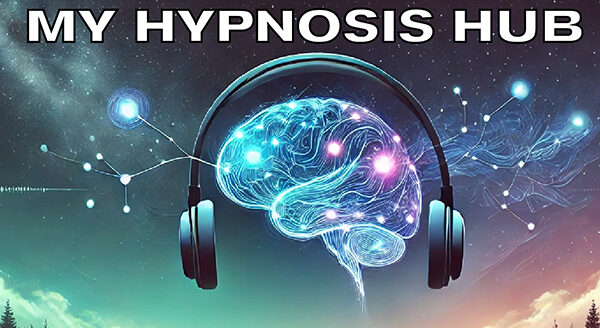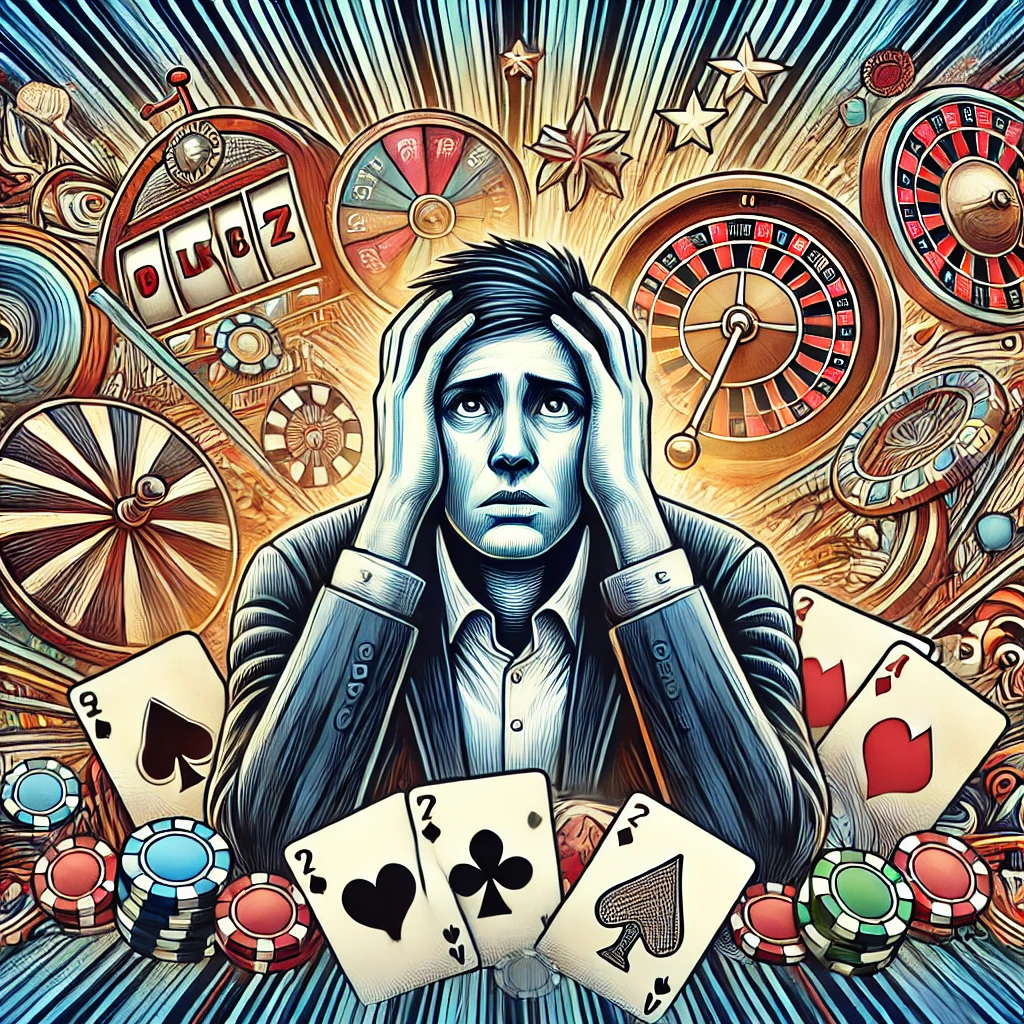Can Hypnosis Help Gambling Addiction? A Deeper Look at Breaking the Cycle
Can hypnosis help gambling addiction and restore a sense of control to those caught in the grip of compulsive betting? Many who wrestle with this habit understand how high the stakes truly are—ranging from mounting debts and eroded relationships to lingering guilt and anxiety. Despite these devastating consequences, the lure of gambling persists, often fueled by excitement and a rush of dopamine that’s difficult to replicate elsewhere. Although counseling, support groups, and sometimes medication can provide structure, more individuals are asking whether hypnosis can address the underlying emotional currents that keep them hooked. In this post, we’ll explore the medical perspective of gambling addiction, how hypnosis might help break entrenched behaviors, and practical ways to incorporate this approach into your recovery journey.
If you’re curious to try a well-structured resource, consider this Gambling Addiction Hypnosis Audio.
1. Understanding Gambling Addiction from a Medical Perspective – Can Hypnosis Help Gambling Addiction
A Behavioral Addiction with Real Neurological Impact
Gambling addiction, often termed “problem gambling” or “Gambling Disorder,” is classified as a behavioral addiction in many psychological and psychiatric references. While no external substances are involved, the neural pathways triggered by gambling mirror those of substance abuse. The brain’s reward system—particularly areas linked to dopamine release—lights up when placing bets or anticipating a potential win. Over time, gamblers chase these surges of excitement, all the while ignoring losses or financial turmoil.
Criteria for Diagnosis
Medical professionals often rely on criteria that include repeated unsuccessful attempts to stop, persistent thoughts of gambling, and betting more money than intended. A key hallmark is how the behavior continues despite mounting negative consequences. As with other forms of addiction, problem gamblers may show signs of withdrawal (irritability, restlessness) when they attempt to quit, reflecting how tightly gambling has woven itself into their emotional coping mechanisms.
Overlapping Issues and Co-Occurring Conditions
It’s not uncommon for problem gamblers to also grapple with anxiety, depression, or other mental health challenges. Stress from financial losses, guilt, or damaged relationships can exacerbate these conditions. In some cases, gambling emerges as a maladaptive strategy to escape emotional pain or dull the ache of depression—further complicating the cycle. This underscores the importance of a broad-based treatment plan, one that looks beyond surface habits.
2. Why Gambling Becomes a Compulsion – Can Hypnosis Help Gambling Addiction
The Thrill of the “Near Miss”
Ever notice how slot machines give out small “wins” that barely cover the cost of a spin? Such near misses keep hope alive, coaxing you to try “just one more” in the belief that a big win is around the corner. Casinos, sports betting apps, and online gaming sites leverage these tactics to stimulate the brain’s reward system repeatedly, steadily nudging casual players toward compulsive patterns.
Emotional and Psychological Triggers
For many, gambling provides emotional relief—an adrenaline rush that distracts from stress, heartbreak, or monotony. However, each fleeting victory often sparks a craving to repeat the feeling, leading to a cycle of chasing lost money with bigger bets. Before you know it, small indulgences grow into extended sessions that overshadow personal obligations and mental well-being.
Lack of Self-Awareness
Much of problem gambling thrives on subconscious triggers. The gambler might consciously know the odds are stacked against them, but the excitement or escapism overrides logic. That’s why even well-intentioned attempts to “just stop” fail if these subconscious urges remain unaddressed. This gap sets the stage for potential solutions like hypnosis, which specifically targets deep-seated thought patterns.
3. Can Hypnosis Help Gambling Addiction?
Shifting the Subconscious Narrative
The allure of gambling is often tied to subconscious beliefs, like “A big win will solve my problems,” or “I can’t feel joy unless I’m betting.” Hypnosis seeks to replace these destructive scripts with more grounded perspectives—“I can find excitement in other pursuits,” or “I value my emotional well-being over fleeting thrills.” By realigning your subconscious with your conscious desire to stop, hypnosis can reduce the internal friction that dooms many attempts at quitting.
Overcoming Emotional Hooks
Beyond just logic, gambling often ties into self-esteem or emotional needs. Maybe you feel unstoppable when you’re on a winning streak, or you relish the sense of belonging at your local gaming venue. Hypnosis can reframe these emotional magnets, guiding you to recognize genuine self-worth and healthy social connections that don’t revolve around the gamble’s high. When your emotional reasons to bet subside, your practical reasons to stop suddenly stand on more solid ground.
Complementing Other Treatments
It’s important to note that hypnosis typically isn’t a standalone fix. It often works best when combined with professional counseling, support groups, or medication for underlying anxiety or depression. But where these methods sometimes falter—failing to break the emotional or subconscious ties to gambling—hypnosis may prove especially beneficial. Think of it as a finishing piece in a puzzle that includes multiple forms of support.
For those ready to dive deeper, consider the structured approach in this Gambling Addiction Hypnosis Audio.
4. Hypnosis for Urges, Impulses, and Trigger Management – Can Hypnosis Help Gambling Addiction
Identifying Root Causes
During hypnosis sessions—whether self-directed through audio or guided by a professional—you’re guided into a calm mental state. Here, you can explore triggers, from stressful workdays to emotional wounds, that keep gambling appealing. By shining light on these triggers in a non-judgmental way, you lay the foundation for change.
Visualization and Positive Reinforcement
Hypnosis also employs visualization techniques. You might mentally rehearse encountering a typical gambling trigger (like walking past a casino or browsing a sports betting site) and calmly choosing an alternative action: calling a friend, going for a brisk walk, or simply acknowledging the urge and letting it pass. This mental dry run can cut down on impulsive decisions in real life.
Reinforcing Healthier Coping Mechanisms
One reason hypnosis can be so effective is that it doesn’t merely say “Stop gambling.” Instead, it provides new scripts—like reaffirming your ability to handle stress or find joy in non-gambling activities. Over time, these suggestions replace the internal dialogue that once urged you to place that next bet. The shift can be subtle at first but grows into a more entrenched sense of control.
5. Practical Steps: Integrating Hypnosis into Your Recovery -Can Hypnosis Help Gambling Addiction
1. Seek Professional Evaluation
Before introducing hypnosis, it’s often wise to talk with mental health or addiction specialists. They can diagnose any co-occurring disorders, such as depression or anxiety, that might fuel your gambling urges. With this knowledge, you’re better equipped to craft a comprehensive plan—one that may combine therapy, medication if needed, and hypnosis.
2. Choose a Format That Suits You
Hypnosis can be delivered in various ways:
- One-on-One Sessions: Personalized scripts and direct feedback, ideal for those needing tailored attention.
- Group Workshops: A cost-effective way to learn self-hypnosis techniques and share experiences with peers.
- Audio Programs: Convenient for at-home practice, letting you absorb suggestions repeatedly without scheduling constraints.
3. Commit to Consistency
Breaking a gambling habit demands regular mental reinforcement. If you’re using an audio program, aim for daily or at least several weekly sessions. Each short practice consolidates the new neural pathways that help you stand firm against cravings.
4. Track Emotional Shifts
Keeping a log can reveal how your mindset evolves. Note the frequency of gambling urges, triggers, and your emotional response. Seeing fewer intense cravings or the ability to say “no” more easily can reinforce your belief in the process, boosting motivation.
5. Lean on a Support System
Gambling addiction thrives in secrecy. Enlist friends, family, or a support group for accountability. Share your intention to use hypnosis, so they understand your method and can offer encouragement. Some might even learn self-hypnosis with you, fostering a sense of solidarity.
6. Addressing Misconceptions About Hypnosis and Gambling Addiction – Can Hypnosis Help Gambling Addiction
Myth: “Hypnosis Isn’t Scientific”
While hypnosis has been dramatized in pop culture, an extensive body of research supports its value for behavior modification and stress reduction. Many mental health practitioners incorporate hypnotherapy into their treatment toolkit. Far from stage gimmicks, modern hypnosis is grounded in psychological understanding.
Myth: “I’ll Lose Control During Hypnosis”
Can Hypnosis Help Gambling Addiction – You remain aware of what’s happening, able to reject any suggestion that doesn’t fit your values. Hypnosis aims to guide you, not dominate your thoughts. If you’re ever uncomfortable, you can bring yourself out of the trance stateC.
Myth: “One Session Is Enough”
Although some individuals experience rapid breakthroughs, lasting recovery usually requires repeated sessions—just like building a new muscle at the gym. Over time, you internalize healthier thought patterns, bolstering your capacity to resist the pull of gambling.
7. Moving Forward: Replacing Old Habits with Healthier Choices – Can Hypnosis Help Gambling Addiction
Fostering New Joy and Activities
Letting go of gambling leaves a void, but it can also be a golden opportunity to discover new passions. From recreational sports to reading clubs, engaging hobbies fill the emotional and time vacuum gambling once occupied. Hypnosis can reinforce your excitement for these fresh pursuits, tying your sense of fulfillment to activities that nurture personal growth rather than draining finances.
Rebuilding Financial Stability
Besides emotional well-being, quitting gambling can help you salvage or rebuild your finances. This might involve setting up automatic savings, seeking a financial advisor, or simply enjoying the relief of no longer experiencing daily guilt over lost wagers. Hypnosis aids you in staying the course when temptations or stress prompt backsliding.
Nurturing Better Relationships
The secrecy and impulsiveness that often accompany gambling can harm trust, from romantic partnerships to friendships. Recovery paves the way for more honest, supportive connections. Hypnosis fosters emotional regulation, so you’re less reactive and more open about your experiences and feelings. This honesty can help you mend strained bonds and deepen existing relationships.
8. Conclusion: Choosing a Life Beyond Bets and Risks
Can hypnosis help gambling addiction? While every path to recovery is unique, many find that hypnotherapy complements other medical and psychological interventions by uprooting the subconscious triggers that fuel compulsive gambling. Through guided relaxation, positive suggestions, and a structured plan, hypnosis helps reorient your emotional landscape. Instead of chasing fleeting thrills at the betting table or online casino, you reclaim a sense of autonomy and long-term well-being.
If you’re looking for a solid starting point, explore this Gambling Addiction Hypnosis Audio. Just remember, real progress often thrives on multiple forms of support, including therapy, peer groups, and personal accountability. But armed with the right tools, each day can mark a tangible step away from the spiral of gambling, and toward a life defined by emotional balance, financial security, and genuine self-confidence.
For insights on how hypnosis can help address broader emotional challenges, check out our guide on Can Hypnosis Help with Depression. A stable, well-tended mind is key to overcoming any addiction, and each facet of self-improvement can bolster your journey to freedom from gambling.





